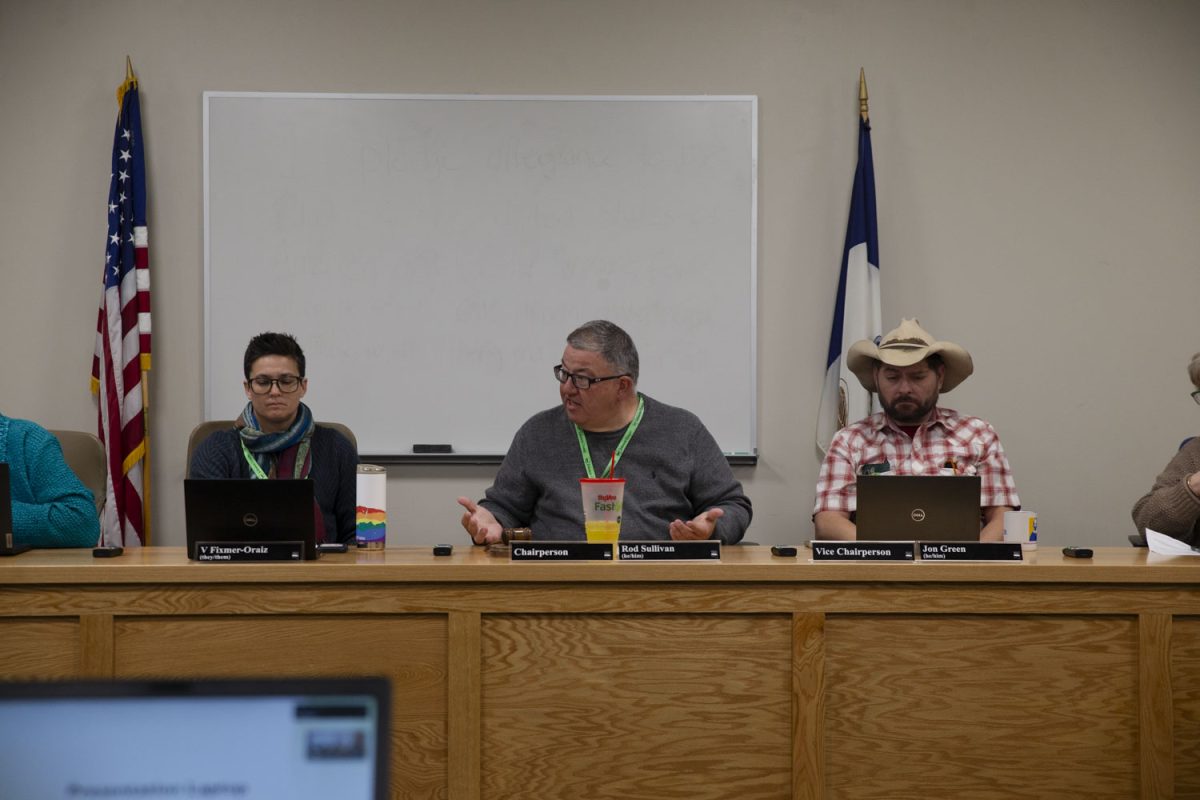UI sexual-assault survivors on both sides of the political spectrum reflect on recent election results.
By Tessa Solomon
[Editor’s note: The names in this story have been changed to protect privacy.]
Many girls can remember their “first time.”
At 14 years old, I experienced mine. Stepping off the school bus, I walked to the front door, passing our reliable, middle-age electrician at work on my home’s exterior. Wires in hand, his eyes followed me. With only a breath separating us, he said I looked “sexy in that tight uniform skirt.”
Those unsettling exchanges between us — a steady occurance until I left for college — were my first introduction to harassment. Disquieting in the instant but now almost inconsequential in comparison to the night, now three years ago, of my assault by a boy my age.
Sexual abuse is an alienating experience. We were alone during those excruciating, millennia-long moments; years later, it is a solitary struggle in the heart’s confines, salvaging remnants of autonomy.
But on the reverse, every survivor enters an ever-expanding, albeit unwilling, sisterhood.
With the 2016 presidential election’s unprecedented emphasis on sexual assault, emotions strained in the survivors’ community. This election felt like a myriad of micro-battles. Muslims, immigrants, white working-class navigating personal states of fear.
In the post-election dawn, sexual-assault survivors entered a new nation, one led by a man who had, 11 years before, admitted to grabbing women’s genitals without consent. Women around the world took to Facebook, Twitter. Outraged, pouring out their experiences. Now a month later, I wanted to know how other survivors at the University of Iowa have processed President-elect Donald Trump’s victory.
“How do I feel?” Violeta, 22, leans back in the chair at High Ground coffee shop, stretching out her black T-shirt.
In bright bold white, it reads: CRUSHING THE PATRIARCHY IS MY CARDIO.
“Does that answer your question?” We both laugh, an unexpected sound given the conversation’s context. Violeta, a senior on the social work track, was born in northern Mexico.
“When the pussy comment came out, I had to spend a day at home by myself,” she said, black hair spilling in front of one eye. “There was suddenly no way for me to not imagine this man as a perpetrator. We could have ignored the elephant in the room, but now the elephant has acknowledged itself.”
In the kitchen a blender springs to life; gentle laughter sounds from the corner table.
“The last year has been a year of healing for me,” she said, words flowing like a furious river. “Then all that healing went away, invalidated.”
Election Night, she cleaned her apartment, panicked productivity propelling her. When the race was called, she was home alone; there was nothing left to clean.
I stayed in bed the next morning, head buried in a pillow. The clock read 9 a.m., 10 a.m., noon; my thoughts leaden. That same morning, Violeta got a tattoo. In the crowded café she yanks up her shirt, displaying the tatted, embolic wolf head snarling on her side. It is a simultaneous symbol of solidarity and pack warmth.
She mentions her stepfather. Her mother left with him for his home in Iowa, escaping Violeta’s birth father’s domestic violence in Mexico.
“My step-dad died recently.” My mouth opens for sympathy, but she shakes her head.
“It’s OK that he died, it really is,” she said. “He was a perpetrator of mine for years. While the election was going on, I knew he was going to vote for Trump. But then he died.”
She chuckles, a hollow sound.
“So I guess now I can’t blame him for this.
“What I’m struggling with is that my dad is dead so I can feel safer, but Trump won’t let me do that,” she said. “It’s not that the triggers have gone away, it’s just now I’m always triggered.”
“Triggers” can be any overt or nuanced reminder of the assault: a distinct scent, a catcall, a glimpse of the perpetrator. Because, according to RAINN, the nation’s largest anti-sexual violence organization, 50 percent of assaults happen within a mile of the home, a bedroom can be an everyday trigger.
We parted soon after, and the next afternoon I returned to High Ground, this time meeting with Anna, 22, a fifth-year UI student and rape survivor who had cast her vote for Trump.
“At the beginning of the primary elections I was thinking if it ends up Donald Trump and Hillary Clinton, then I want to move out of the country,” she said. We sat at the window’s counter, her gripping a cup of chai, me tugging threads from my sweater sleeve.
“I was going to vote for Gary Johnson, but the night before the election I had this crisis [that that wouldn’t] do anything,” Anna said. “I decided the lesser of two evils was Trump.”
At her home in the Chicago suburbs, situated on a backstreet that only received a street sign this past year, she’s a moderate — liberal leaning on social issues, against invasive executive powers — in a community of Republicans. Now she works in documentary activism, but how, she wonders, would her fellow activists react to her political decision?
“When his lewd comment about that video broke out, it sounded like a joke to me, but it’s not something that I haven’t heard before, and that’s what bothered me,” Anna said. “I think this is a culture that encourages male entitlement.”
She grips her drink, tight and still, while relating her first rape, an attack prom night that she fought legally to no avail.
“When I came here from high school, I almost brushed it under the rug.” In the wake of her second assault at the UI — she remembers running, disoriented, through Iowa City’s streets that night, endlessly away from her perpetrator’s home — reality became a new trigger.
“When it happened again, it was like ‘where to go?,’ ” she said. “I tried to get out of here, but transferring on such short notice didn’t work out. You can say I made my peace with the area.”
When faced with a ballot, making peace with Clinton’s involvement, or lack of, in Bill Clinton’s sexual-assault accusation was something she was incapable of doing.
“In high school, it was the first time I had an encounter sexually,” Anna said. “People were saying, ‘You were a whore, you asked for it.’ When I look at women like Juanita Broaddrick, I can’t help but see a part of myself crying out in their own case. I just couldn’t support someone like Hillary for not listening.”
She lays out her case for Trump.
“After those comments, he’s forced to address those issues. He needs to be convinced that ‘Hey, we’re here, too, we’ve been wronged.’ He has a duty to prove that’s not who he is anymore.”
She shared her story, so I anticipated the question coming. “If you don’t mind me asking, I know you’re the interviewer, but were you assaulted here at the university?”
Everytime I say it out loud, the violence is made real and resounding like a punch. But truth was not only fundamental for trust between survivors, I was learning it’s catharsis.
Later, tremors wracked my legs when I sat down to write this. The spasms were so extreme that when I forced my hands down on my thighs, the sudden stillness spurred a sickening rush of blood.
I felt that same panic at High Ground, a second-long freefall. Anna’s light eyes were open, though, a calm ocean. She would not have pushed for an answer.
“No, I was in high school. I was 17.”
Questions form in the wake of trauma. How do I reassemble myself? What did I even look like before?
I don’t know, but there is evident truth: A survivor’s pain has no sole home on the political spectrum. One in six women will be assaulted in college, regardless of political leanings or present circumstances.
Despite her story and the stories still to come, Violeta imagines a hopeful future.
“Now, there will be cultural change, and I think our generation can handle it.”







